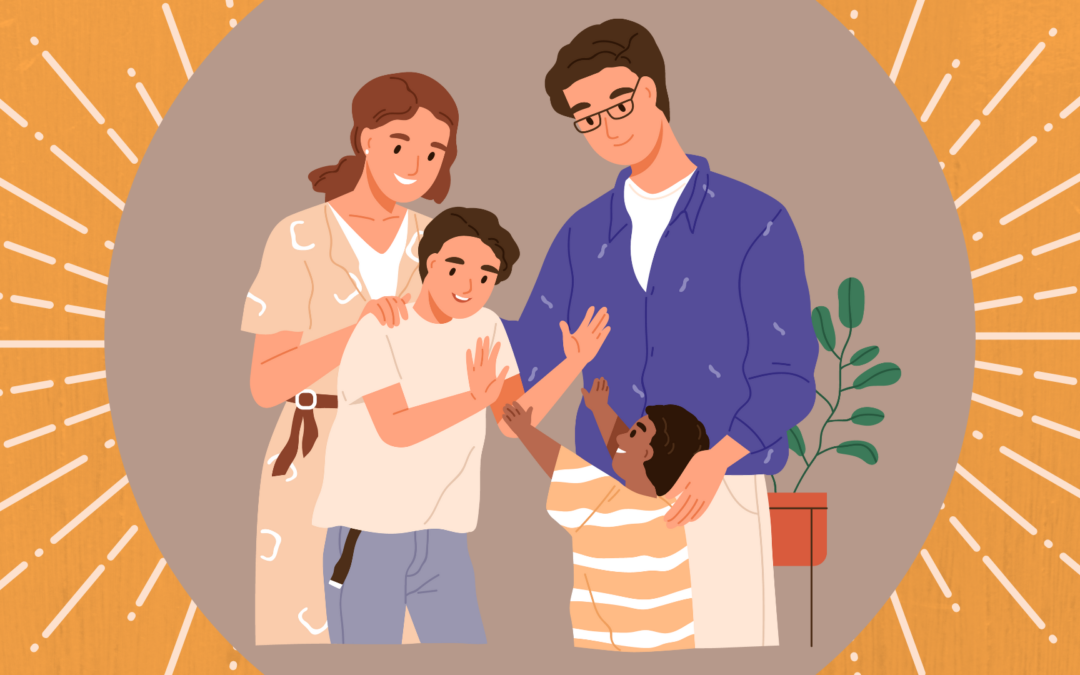The journey of adoption is a unique and transformative experience for both children and adoptive parents. While adoption can bring immense joy and fulfillment, it can also present challenges related to attachment issues. The lack of attachment in adoption is a complex issue that requires understanding, empathy, and specialized interventions such as adoption therapy treatment. In this blog, we delve into the impact of attachment difficulties in adoption and explore the role of adoption therapy treatment in promoting healthy relationships and emotional well-being.
Understanding Lack of Attachment in Adoption
Attachment is a fundamental aspect of human development, influencing how individuals form relationships, regulate emotions, and navigate the world around them. In the context of adoption, children may experience disruptions in their early attachments due to factors such as separation from birth parents, multiple placements, or traumatic experiences. These disruptions can lead to challenges in bonding with their adoptive parents, resulting in what is known as a lack of attachment.
Effects of Lack of Attachment in Adoption
The absence of a secure attachment bond can have profound effects on both children and parents in the adoption triad. Some common effects of lack of attachment in adoption include:
- Behavioral Challenges: Children may exhibit behaviors such as defiance, aggression, withdrawal, or difficulty trusting others due to their unresolved attachment issues.
- Emotional Distress: Adoptive parents may experience feelings of frustration, guilt, or inadequacy when trying to connect with a child who struggles with attachment difficulties.
- Parent-Child Relationship Strain: The lack of attachment can strain the parent-child relationship, leading to misunderstandings, conflicts, and a sense of disconnect between the child and their adoptive family.
- Developmental Delays: Children with attachment issues may experience delays in social, emotional, and cognitive development, impacting their overall well-being and ability to thrive.

The Role of Adoption Therapy Treatment
Adoption therapy treatment is a specialized form of therapy designed to address the unique needs of individuals and families touched by adoption. This type of therapy focuses on promoting healthy attachments, enhancing communication skills, and supporting emotional healing within the adoptive family unit. Here are some key elements of adoption therapy treatment:
- Attachment-Focused Interventions: Adoption therapy treatment often incorporates attachment-focused interventions aimed at strengthening the bond between adoptive parents and their children. These interventions may include activities that promote trust, empathy, and emotional connection.
- Trauma-Informed Care: Many children who come from backgrounds of trauma may benefit from trauma-informed therapy approaches within the context of adoption therapy treatment. These approaches aim to address past traumas, build resilience, and support healing.
- Family Counseling: Family counseling is an integral part of adoption therapy treatment, providing a safe space for adoptive families to address challenges, enhance communication, and foster healthy relationships. Family counselors trained in adoption-related issues can offer valuable insights and support.
- Psychoeducation: Adoption therapy treatment often involves psychoeducation sessions that help adoptive parents understand the impact of early trauma and disruption on their child’s development. Education about attachment theory, parenting strategies, and coping mechanisms can empower parents to support their child effectively.
Seeking Support Through Adoption Therapy Treatment
If you are navigating the challenges of lack of attachment in adoption, seeking support through adoption therapy treatment can be immensely beneficial. Whether you are an adoptive parent struggling to connect with your child or an adopted individual grappling with attachment issues, therapy tailored to the unique dynamics of adoption can provide valuable insights, tools, and support. Remember, reaching out for help is a sign of strength and a proactive step towards building healthier, more fulfilling relationships within your adoptive family.
Conclusion
The lack of attachment in adoption is a significant issue that can impact the well-being and relationships of individuals within the adoption triad. By understanding the effects of attachment difficulties in adoption, exploring the role of adoption therapy treatment, and seeking support when needed, adoptive families can navigate challenges and build strong, nurturing bonds that promote healing and growth. Remember, every journey in adoption is unique, and with patience, empathy, and professional guidance, families can overcome obstacles and create loving, secure connections that last a lifetime.
If you are facing challenges related to lack of attachment in adoption, consider reaching out to a qualified adoption therapist or counselor for support. Together, you can embark on a journey of healing, understanding, and transformation, fostering healthier relationships and brighter futures for everyone involved.

